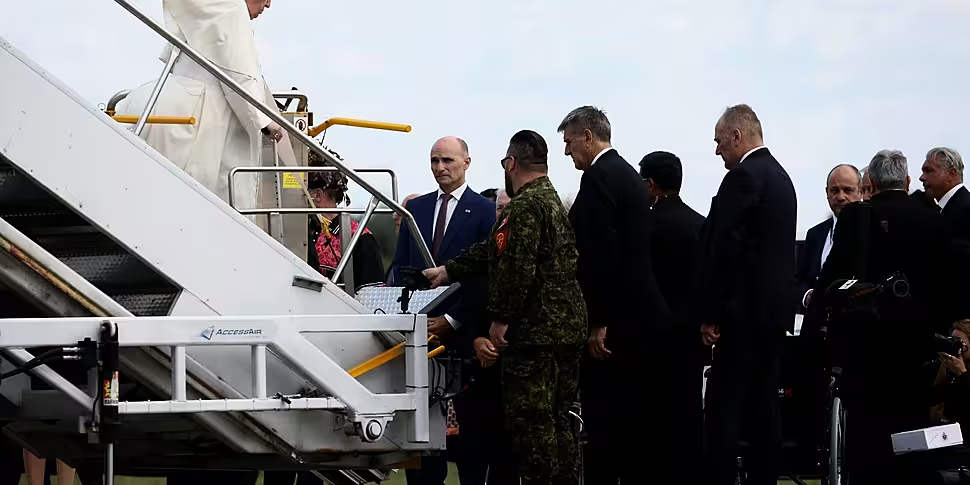Pope Francis has said he is “deeply sorry” for child abuse in Catholic boarding schools for Canada’s indigenous peoples.
The schools were designed to assimilate children into white society through systematic oppression of their language and culture.
Between 1870 and 1996, some 150,000 First Nations, Métis and Inuit children were sent to residential schools and 70% were run by the Roman Catholic Church.
Survivors have told Canada's Truth and Reconciliation Commission stories of sexual abuse, violence and starvation at the hands of those who were supposed to care for them.
Historians are still unsure about how many children died in the schools but former judge Murray Sinclair, who served on the commission, said potentially as many as 25,000 children died at the schools.
Acknowledging this, the 85-year-old Pontiff said he felt "sorrow, indignation and shame" for the actions of his fellow Catholics and admitted the school system had been a "disastrous error".
The Church in #Canada has been hurt by the evil perpetrated by some of its sons and daughters. I would like once more to ask forgiveness of all the victims of abuse. The pain and the shame we feel must become an occasion for conversion: never again! #ApostolicJourney
— Pope Francis (@Pontifex) July 28, 2022
It is a sentiment Pope Francis expressed repeatedly on his six-day trip across the country, which was designed to foster reconciliation and healing between the Church and indigenous peoples.
"I think in particular of the sexual abuse of minors and vulnerable people, scandals that require firm action and an irreversible commitment," His Holiness told a service in Quebec City on his fifth day in Canada.
"Together with you, I would like once more to ask forgiveness of all the victims. The pain and the shame we feel must become an occasion for conversion: never again!"
Among survivors there are diverging views on the meaningfulness of the Pope’s visit and apologies but after a speech in the Arctic city of Iqaluit, tears were seen in the eyes of some attendees and there was sustained applause.
"I'm very happy Pope Francis is able to come here and am happy that I'm able to see this," Ooleepika Veevee told the CBC.
"He came all the way from Rome to come and apologize."
"In addition to the apology, which I felt was sincere," Natan Obed, president of Inuit Tapiriit Kanatami, said, "it was very good to hear him show how he understood what had happened in a way that I think a lot of residential school survivors talk about."
“Your Holiness, [Survivors] came to hear what you had to say with hearts and minds open, some willing to forgive, some still living with the hurt, but all willing to listen.” – #GGSimon#WalkingTogether pic.twitter.com/hkFPtFal4t
— Governor General of Canada (@GGCanada) July 30, 2022
Genocide?
On his flight back to Rome the Pope was quizzed about why did not use the word “genocide” during his trip and he mused, "It's true that I did not use the word because I didn't think of it. But I described genocide. I apologised, I asked forgiveness for this activity, which was genocide.”
He concluded:
"I condemned this, taking children away and trying to change their culture, their minds, change their traditions, a race, an entire culture."
Main image: Pope Francis disembarks at Quebec International Airport in Quebec City, Canada July 27, 2022. Picture by: REUTERS/Guglielmo Mangiapane









